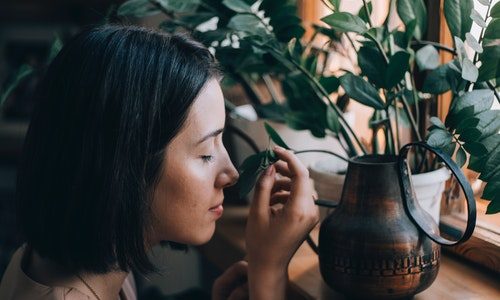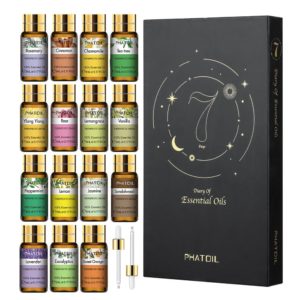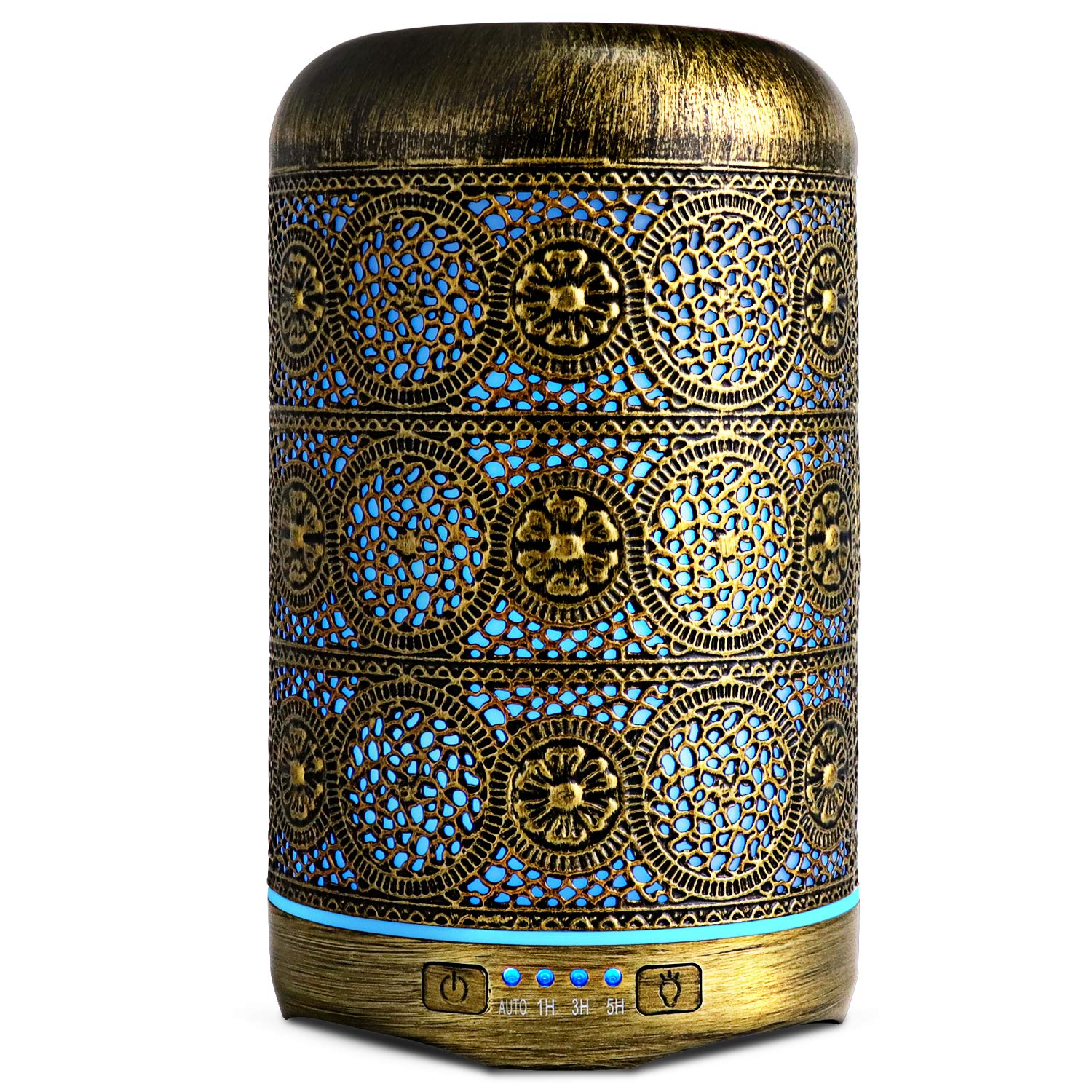
Beyond Good Smells, Does Aromatherapy Really Work?
Case Study From A Certified Aromatherapist
“James is a 43-year-old married male, in excellent health. He has no major health concerns and leads an active lifestyle. He eats healthy foods and supports his health with various physical and spiritual activities that include his wife and eight-year-old twin boys.
His sleep quality had been dwindling when he came to me. He had gone several weeks with disrupted sleep. The cause of this change was unknown, but he believed constant worry about coronavirus, the economy, and his family may have been contributing to the issue. He rarely slept through the night anymore.

I created a blend of Cedarwood, Lavender, and Sweet Orange for inhalation. He was instructed to spend at least 10 minutes before bed, breathing deeply and settling his thoughts. He was also instructed to not watch the news for at least 60 minutes prior to bedtime.
After using the diffuser for a few days, he reported that he loved the scent but wasn’t sure it was doing anything. I told him to follow the process for at least 7 more days and track his hours of sleep. I then told him to take two days off and see if he noticed a difference.
He contacted me after the allotted period of time to report that he noticed a significant difference on the days that they didn’t use the blend. He went back to using the diffuser each night and began to experience a gradual increase in sleep quality. He has since ordered refills of the blends. He takes a warm bath prior to bed and is now sleeping soundly.”
What is Aromatherapy?
Aromatherapy is a holistic healing treatment that uses natural plant extracts to promote health and well-being. Sometimes it’s called essential oil therapy. Aromatherapy uses aromatic essential oils medicinally to improve the health of the body, mind, and spirit. It enhances both physical and emotional health.
Aromatherapy is thought of as both an art and a science. Recently, aromatherapy has gained more recognition in the fields of science and medicine.
It’s been used for thousands of years. Ancient cultures in China, India, Egypt, and elsewhere incorporated aromatic plant components in resins, balms, and oils. These natural substances were used for medical and religious purposes. They were known to have both physical and psychological benefits.
How Does Aromatherapy Treatment Work?
Aromatherapy works through the sense of smell and skin absorption using products such as these:
- diffusers
- aromatic spritzers
- inhalers
- bathing salts
- body oils, creams, or lotions for massage or topical application
- facial steamers
- hot and cold compresses
- clay masks
Aromatherapy benefits
Aromatherapy has an array of benefits. It’s said to:
- manage pain
- improve sleep quality
- reduce stress, agitation, and anxiety
- soothe sore joints
- treat headaches and migraines
- alleviate the side effects of chemotherapy
- ease discomforts of labor
- fight bacteria, virus, or fungus
- improve digestion
- improve hospice and palliative care
- boost immunity
 Most Commonly Used Essential Oils
Most Commonly Used Essential Oils
- Lavender– The ultimate relaxer, lavender is recommended for those who find it difficult to sleep.
- Clary sage– This oil is believed to manage labor pains and relieve menstrual cramps. It is also known for its stress-relieving properties.
- Eucalyptus– This oil is known for relieving respiratory congestion, so it can be helpful if you are suffering from a cold.
- Peppermint– Mint is an energizing oil that may help ease migraines and relieve nausea.
- Lemon– An uplifting and detoxing scent, lemon can help energize you and lift your mood.
- Fennel– Fennel is thought to help the digestive system and encourage menstrual regulation.
- Mandarin– A calming oil with a warming citrus scent. It is often combined with lavender oil to help children relax.

